Black Walnut Tree Compatible Plants: Plants That Grow Under Black Walnut Trees
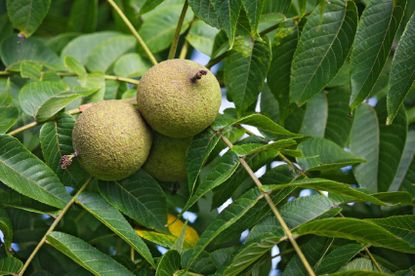
The black walnut tree (Juglans nigra) is an impressive hardwood tree grown in many home landscapes. Sometimes it is planted as a shade tree and other times for the wonderful nuts it produces. However, because of black walnut toxicity, some plants don't do well when planted around the black walnut.
Planting Around a Black Walnut Tree
Planting around a black walnut tree can be fatal to some plants because of black walnut toxicity, which causes an allelopathy that affects the growth of certain plants in the same area. Plants are classified as either being sensitive to the black walnut or black walnut tolerant plants. There is a specific chemical, called juglone, that occurs in the whole black walnut tree. This chemical causes black walnut toxicity in other plants which then causes sensitive plants to yellow, lose their leaves, wilt and eventually die. There are other trees that produce this chemical, such as the pecan and bitternut hickory, but they don't produce as much of the juglone as the black walnut, making them somewhat harmless to other plants. Only the black walnut causes black walnut toxicity in other plants.
Plants That Grow Under Black Walnut Trees
There are several ways to prevent toxicity. One way (probably the easiest way) is, when planting around a black walnut tree, plant only black walnut tree compatible plants. Black walnut tree compatible plants are any known plants that grow under black walnut trees without any sign of toxicity damage. Black walnut tolerant plants include the sugar maple, flowering dogwood and the boxelder to name a few. You can also plant crocuses, hyacinths and begonias. All of these plants are known to be black walnut tolerant plants. There are many more, and your local garden center can inform you of any intolerable plants so you don't run into any problems. Some other black walnut tolerant plants are:
- Bluebells
- Daffodil
- Daylily
- Ferns
- Fescue
- Iris
- Jack-in-the-pulpit
- Kentucky bluegrass
- Liriope
- Lungwort
- Narcissus
- Phlox
- Shasta daisy
- Trillium
Another way to prevent black walnut toxicity is to construct the beds so that root penetration is not possible. If you can keep your garden or yard separated from the black walnut tree, you will save the lives of your plants. Make sure you also keep all the black walnut leaves out of your garden beds so that the leaves don't decompose in the beds and accidentally get mixed into the soil. The black walnut tree is a beautiful tree and makes for a lovely addition to any landscape. Just make sure to follow the appropriate precautions and you can enjoy one in your yard for a long time to come!
Gardening tips, videos, info and more delivered right to your inbox!
Sign up for the Gardening Know How newsletter today and receive a free download of our most popular eBook "How to Grow Delicious Tomatoes."
-
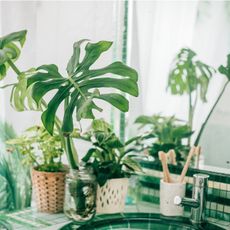 Grow a Bathroom Oasis: 8 Best Bathroom Plants With No Light or Low Light
Grow a Bathroom Oasis: 8 Best Bathroom Plants With No Light or Low LightSome apartment dwellers grow the best bathroom plants with no light or low light. Read how one of our favorite plant lovers does it in the big city.
By Teo Spengler
-
 "My Worst Mistake" – Gardeners Share 10 Hard-Learned Lessons
"My Worst Mistake" – Gardeners Share 10 Hard-Learned LessonsGardeners never stop learning, and sometimes our mistakes are the best teachers. But why not save time and heartache by learning from other gardeners' failures?
By Melanie Griffiths
-
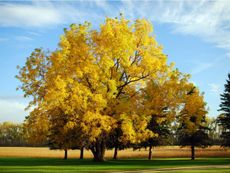 Choosing Juglone Tolerant Trees – Planting Trees Near Black Walnuts
Choosing Juglone Tolerant Trees – Planting Trees Near Black WalnutsIf you want to plant trees next to black walnuts, you need ones with juglone tolerance. For more information, click here.
By Teo Spengler
-
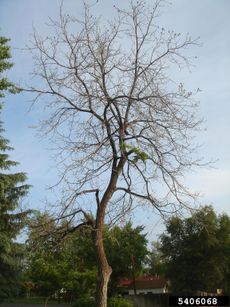 Is My Black Walnut Dead: How To Tell If A Black Walnut Is Dead
Is My Black Walnut Dead: How To Tell If A Black Walnut Is DeadBlack walnuts are subject to diseases and pests that can kill them at any age. Click here and learn how to tell if a black walnut tree is dead or dying.
By Teo Spengler
-
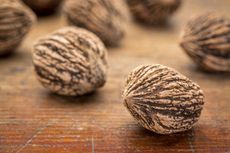 Harvesting Black Walnut Trees: When Do Black Walnuts Fall
Harvesting Black Walnut Trees: When Do Black Walnuts FallBlack walnuts that are ripe will almost literally fall in your lap. All you need is a tarp, some containers, and knowledge of when do black walnuts fall. This article has information that will help with harvesting black walnuts.
By Bonnie L. Grant
-
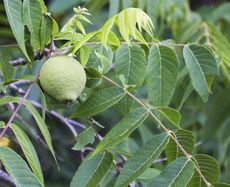 Planting Black Walnut Trees: Learn About Black Walnut Tree Growing
Planting Black Walnut Trees: Learn About Black Walnut Tree GrowingIf you are an avid arborist or if you live in an area that was, until recently, populated by native black walnut trees, you may have questions about how to plant a black walnut tree. Also, what other black walnut tree info can we dig up? Click here.
By Amy Grant